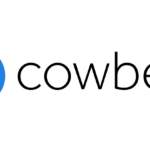The Impact of Artificial Intelligence on the Work Environment
The integration of artificial intelligence (AI) has significantly transformed the contemporary work landscape and is set to redefine the future, eliciting both praise and scrutiny in equal measure.
A little over a year ago, OpenAI introduced ChatGPT, an AI assistant that has gained widespread acceptance among employees, becoming an indispensable part of their daily routines.
AI has transcended its theoretical origins to become a practical tool that enhances workflow efficiency and drives innovation. Despite its benefits, there exists a faction that perceives AI as a potential threat to job stability, reflecting the ongoing debate surrounding this technology.
The emerging trends in AI work dynamics for 2023 underscore the profound influence of technology on our daily routines and provide insights into its societal implications in 2024 as technological advancements progress rapidly.
The Current Dependence on AI by Employees
Many workers have seamlessly integrated AI into their daily responsibilities, particularly for mundane administrative tasks and basic cognitive functions. In roles that rely on knowledge, AI has the capacity to free up employees for more creative and complex assignments. Some individuals even utilize AI tools for crafting resumes and cover letters to bolster their job prospects.
However, as the utilization of AI becomes more widespread, certain companies are imposing restrictions on its use in the workplace. Simon Johnson, a prominent figure at MIT Sloan School of Management, observes a trend where organizations are either indirectly limiting or outright prohibiting access to tools like ChatGPT due to concerns over misuse or data security breaches.
Despite these constraints, some employees who heavily rely on AI tools have resorted to covert methods to maintain access, whether for productivity enhancements or gaining a competitive edge over colleagues. Online communities offer advice on discreet ways to leverage technology in professional settings.
Initially perceived as a solution for automating routine tasks like customer service and delivery services, AI has advanced to encroach upon more intricate knowledge-based roles that were previously considered secure. Leading AI programs such as Midjourney and Stable Diffusion can swiftly generate detailed visuals and realistic renders, tasks that were traditionally handled by experienced design teams.
Statistics support employees’ concerns. A report by Goldman Sachs in March 2023 suggests that AI capable of automating tasks may displace 25% of current human labor, potentially leading to the loss of 300 million jobs across Europe and the US.
Mark Muro from the Brookings Institution highlights the impact on white-collar professionals, emphasizing the uncertainty surrounding AI’s long-term effects compared to previous, more predictable technological advancements.
The Persistence of Indispensable Roles – For Now
Despite apprehensions, numerous roles requiring specialized expertise and creativity are unlikely to be automated in the foreseeable future. Positions that demand intricate knowledge and innovative thinking are considered safe from AI intrusion.
Martin Ford predicts that roles involving complex human interactions, such as nursing and consultancy, pose challenges for AI to replicate due to the deep understanding of human behavior they require. He asserts that authentic human connections are invaluable and may take AI a significant amount of time to effectively emulate.
Furthermore, professions like electrical work and plumbing, which necessitate problem-solving abilities and adaptability in dynamic environments, present substantial obstacles for automation. The reliance of these roles on physical dexterity and non-linguistic tasks makes them resistant to AI encroachment.
Experts suggest that as AI becomes more pervasive, it is likely to complement rather than replace individual skills. Joanne Song McLaughlin highlights medical professionals who combine AI capabilities with their expertise to effectively communicate sensitive information to patients, emphasizing the synergistic relationship between technology and human proficiency.
Employees are increasingly leveraging AI tools like ChatGPT for various tasks such as email composition, travel arrangements, expense tracking, and project management. Additionally, AI assists in mitigating bias in decision-making processes, with data-driven recruitment practices aiding in matching candidates to suitable roles efficiently.
While AI may displace certain jobs, it also opens up new opportunities in fields like data engineering, governance, and specialized training roles.
Navigating a Landscape of Optimism and Uncertainty
While AI dominates contemporary discussions, it is not the first technology to disrupt the workforce. From office computers to automation across industries, technological advancements have consistently reshaped work processes.
Scott Likens of PwC underscores that technological advancements, including AI, have the potential to streamline operations. However, individuals can evolve alongside these advancements by acquiring the necessary skills.
Experts advocate for viewing AI as a tool rather than a threat, encouraging individuals to adapt, learn, and integrate these technologies into their workflows. Education and training play a crucial role in understanding AI’s capabilities and leveraging them to acquire new skills, fostering a proactive approach towards embracing and harnessing the potential of AI.






